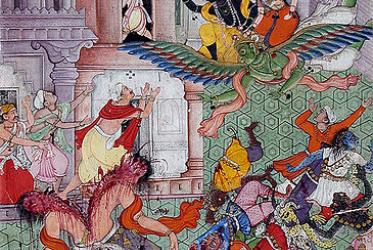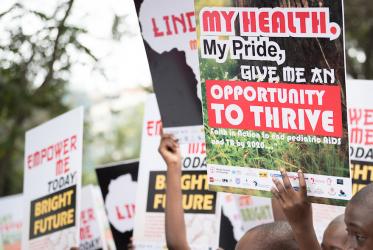| When the World Council of Churches Assembly in 2013 called for a pilgrimage of justice and peace, it explicitly addressed not only Christians but invited people of good will everywhere to join. It recognized the gifts our interfaith partners have received from God and challenged them to engage them in transforming actions. That's why, alongside our tradition of offering greetings to inter-religious partners during major festivals, we have started inviting scholars and believers from different traditions to reflect on those festivals from the perspective of justice and peace. |
|---|
It’s almost time to celebrate the Muslim festival of Eid al Fitr*. This comes after the month of Ramadan in which many Muslims fast from the acts of eating, drinking and sexual activity during daylight hours, and intensify in their charitable work. This is intended to soften our hearts to the situation of others, and importantly: heighten our awareness of our inner dialogue, outward actions, and ultimately pull us into closer communication with the Divine.
Rumi proclaimed:
“O moon-faced Beloved,
the month of Ramadan has arrived
Cover the table
and open the path of praise.”
For me (as for many Muslims) the focus this month has really been praise: prayer, recitation of sacred texts, meditation and contemplation. Anything which nourishes my connection with the Divine. Without the distraction of the outer acts of drinking and eating, I am able to bring my focus more firmly to my inner life. This time of the year year always makes me conscious of how much of my day is centered around consumption of some sort. The requirement to suspend this is like a new found freedom.
“The lips of the Master are parched
from calling the Beloved.
The sound of your call resounds
through the horn of your empty belly.”
As the end draws near, my heart is always sad. This is because there is a very sweet quality to this month. The fasting tends to slow me down and lead to gentler qualities being revealed, a real antidote to the fast paced existence most of us are forced to lead.
“Let nothing be inside you.
Be empty: give your lips to the lips of the reed.
When like a reed you fill with His breath,
then you’ll taste sweetness.”
This Ramadan, I have benefitted greatly from reflection on many of the attributes* of God. In particular, Ya Quddus (The Holy or Pure One) and Ya Wali (The Friend). I have found recitation of these names to really deepen my sense of connection with God as the Holy Friend. It has also allowed me to reflect on these qualities of unadulterated purity and deep friendship, how these are manifested in the holy friends of God such as the Prophet Muhammad and Mary (may peace and blessings be upon them both), and how I might in my own humble way seek to embody them.
“Sweetness is hidden in the Breath
that fills the reed.
Be like Mary – by that sweet breath
a child grew within her.”
I look forward to the three days of Eid. It will begin with prayer as we give thanks for the spiritual gifts bestowed during Ramadan which we hope to take forward into the year ahead. For me it will be a joyful time passed with family and friends.
***
Explanatory notes:
- Eid al Fitr literally means “festival of breaking the fast”
- Rumi is a well known and much loved 13th century Muslim scholar of Afghan origin. The poetry is all from Rumi.
- In Islamic tradition, it is held that God has at least 99 names (referred to also as “qualities” or “attributes”. Many of which are revealed in the Quran. These are held by some Muslims to be portals for deep connection with the Divine Reality.






